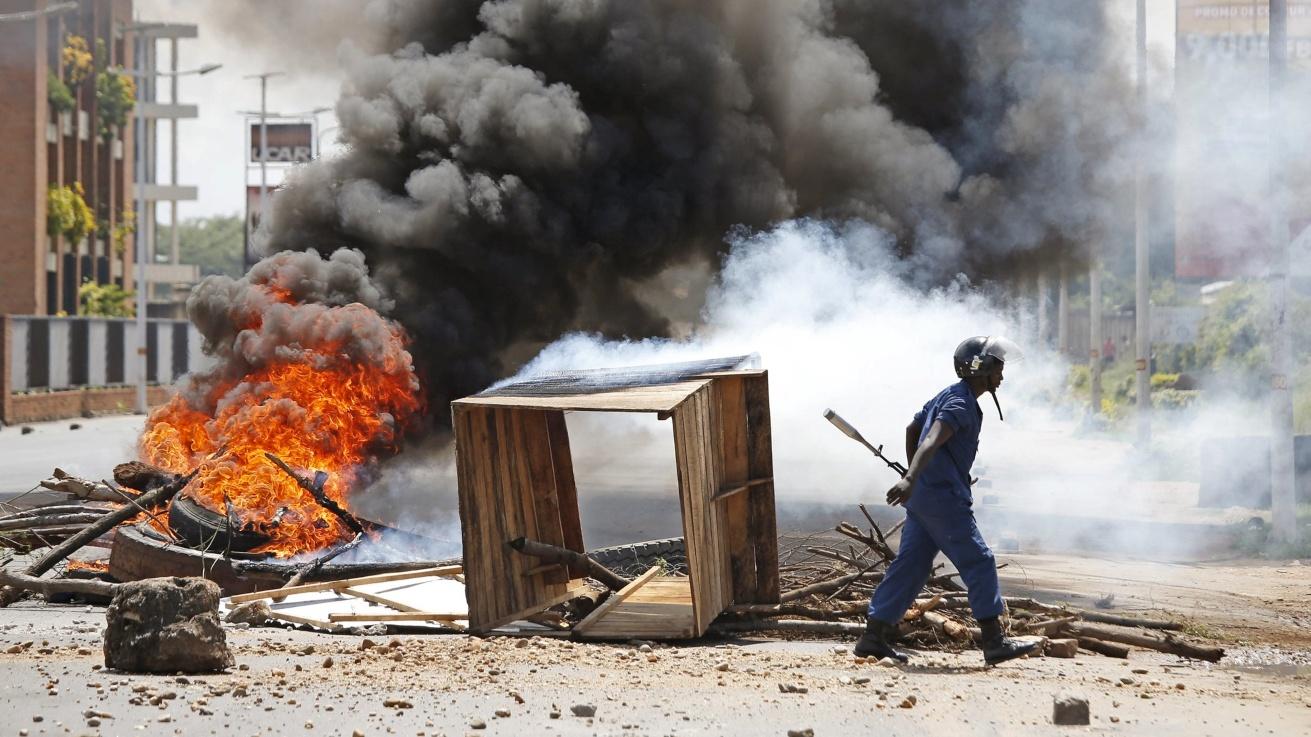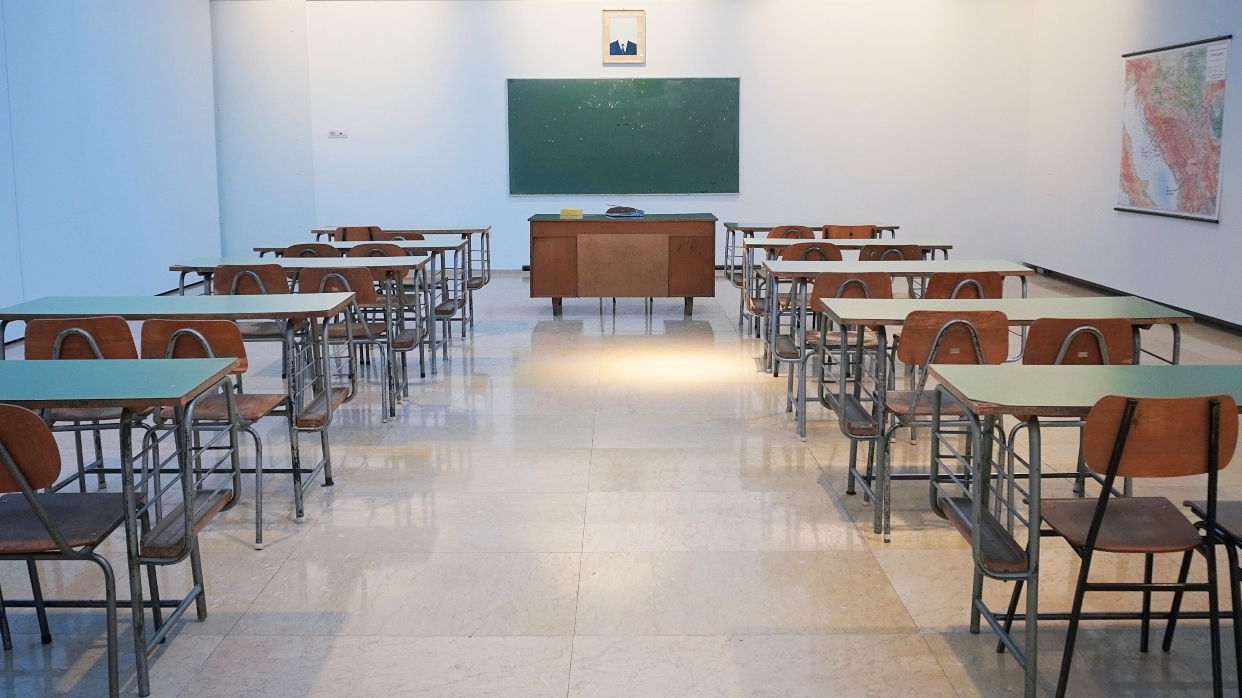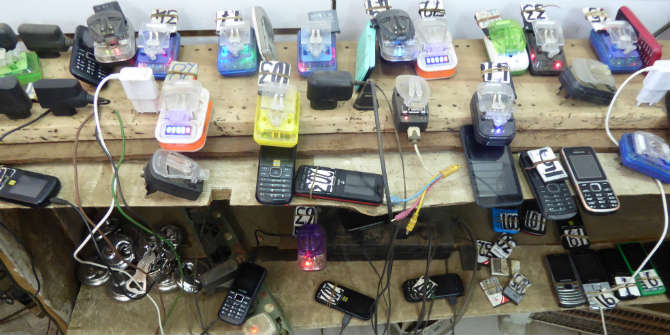Youth activism has gained significance in Côte d’Ivoire following two decades of political upheavals and civil war. Through small organisations and social and online networks, young people in large numbers are promoting human rights and socio-economic justice, subscribing to a vision of counter-power where the government is lacking. Today, what does young Ivorians’ activism look like and can it be effective?
This post is the first in the series Youth activism in Africa, examining the political mobilisation and organisation of youth across Africa to effect change.
Youth activism in Cote d’Ivoire does not exist in a vacuum. It has been built on a long history of engagement dating back to the women’s march in Grand-Bassam in 1949, which sought to achieve for the country peaceful independence. The wave continued in the 1990s with the advent of a multiparty political system, and the creation of the youth organisation Federation of Pupils and Students of Côte d’Ivoire (FPSCI). At this time, however, demonstrations by students and pupils were often repressed. Led by Ahipeaud Martial, the organisation’s first secretary general, the students fought for their rights to better living conditions, working environments and scholarships, which they felt went unrecognised under the single party system.
Following the social and political upheavals in Ivorian society that culminated in two decades of civil war, from 2002–2004 and 2010–2011, youth activism gained particular significance. Later, during the 2000s, FPSCI was accused by national and international NGOs of engaging in violence against the opponents of President Laurent Gbagbo, as well as of racketeering in a student environment.
Youth associations in Côte d’Ivoire today
Nowadays, young Ivorians engage in a large number of organisations that have a youth body: non-governmental organisations (NGOs), cooperatives, human rights associations, women’s associations, neighbourhood or community associations, religious groups, local movements, organisations of indigenous populations and political parties. A study commissioned by the United Nations Department of Economic and Social Affairs (UNDESA) in 2019 notes that there were about 12,000 youth associations in the country, but of these only 1,563 were officially registered (from a population of about 25 million).
The Ivorian youth associations are grouped within several federations, each campaigning for youth rights. The National Youth Council of Côte d’Ivoire (NYCCI) is an umbrella organisation to which all federations belong. The spatial distribution of organisations at the national level shows that the country’s South has more than a third (36.6%) of these organisations, compared to 22.6% in the North, 18.9% in the Centre, 17.3% in the West and 4.7% in the East. Their fields of action are directed at sixteen of the seventeen Sustainable Development Goals (SDGs).
An analysis of data on youth associations reveals these organisations’ diverging areas of interest and focus. 74% of the associations address issues of socio-economic prosperity and 19% on issues concerned with national overpopulation. Meanwhile, peace-related issues are tackled by only 5% of youth associations, with safeguarding of the environment being marginal at 1%.
The funding of these youth civil society organisations is based on membership fees and other periodic contributions collected from members and supporters. For the 2019 fiscal year, the State decided to grant a subsidy of approximately $20,000 to each of the seven approved federations and $140,000 to the NYCCI. Apart from this source, some civil society organisations benefit from financial and technical support from political figures, national private structures and development partners within the United Nations system, depending on the areas of intervention.
This support means young Ivorians are rising to the challenge of promoting a better society by advocating for human rights, peace and socio-economic justice. Despite being a population affected by unemployment and socio-economic problems, young people in Cote d’Ivoire are engaged in their environment and conquering social networks and communities to promote their activist agendas, subscribing to a vision of counter-power – that is, claiming power for themselves where the government is seen as lacking. For example, a young women’s platform called LEAGUE focuses on the issue of gender-based violence, working with young women and supporting victims by providing training on prevention measures and a respect for women’s rights. The LEAGUE has advocated interventions and brought the issue to the attention of government authorities.
Youth, Peace and Security network
Trying to mend a fractured social fabric after years of civil war and the ensuing post-electoral crisis, I established, together with other youth activists, a network on ‘Youth, Peace and Security’, which was initially supported by the United Nations. Our network is invested in bringing together young Ivorians despite their political, religious and ethnic differences, fostering positive and open dialogue among different groups of youth and between the Government and Parliament. It includes young people from different social strata, of different genders and from urban and rural settings.
Members of our network are eager to engage and contribute to a better society, which has galvanised us to undertake a series of actions in communities to bring young people together. We organise training workshops as well as debates and roundtable discussions on various themes related to peace and security, such as eradicating violence, the importance of agriculture, challenging youth unemployment and illegal immigration. We run voluntary sanitation campaigns in various neighbourhoods, organise musical concerts and football matches as well as peace marches and other similar events. Our network is connected through a WhatsApp group that facilitates the exchange of information, ideas and opportunities. It is also a good platform for mobilisation and planning of our activities, given the ease, scale and speed of the communication.
The Youth, Peace and Security network continues to thrive after the initial funding from the UN, and we received two awards of Excellence by the President of the Republic for 2019. I am also personally involved in the ‘youth of Francophonie’ platform, which brings young people together around development initiatives.
Challenges for youth organisations
Despite having no legal recognition, many youth organisations remain committed to breaking down social barriers and contributing to society. The strengths of these organisations lies in their ability to work in a much smaller spaces, as their size makes them more effective at organising activities than large structures located throughout the country. Young so-called ‘influencers’ are also involved in similar actions through online social networks, producing videos, writing blogs and articles, and they have a big impact on a large part of the population, especially the youth. These influencers campaign for a respect of human rights and better living conditions, especially for people who live in non electrified areas.
The involvement of these associations in the voluntary management of public affairs leads public authorities and development partners to associate them with positive activities, but does not detract from the precariousness of their evolution. Training of association members remains a primary challenge, so that they can support building a more modern Ivory Coast in the way they want. There are several examples of deficient training for members causing set-backs in their aims of running successful awareness campaigns. For example, a campaign launched in response to the COVID-19 pandemic has shown young people support populations uninformed about epidemic prevention measures. In some workshops, however, some youth provided information that was not fully accurate about hand washing steps. This can undermine the constructive work they are doing. Thus, proper training and access to reliable information is fundamental.
Another challenge for youth organisations is a lack of financial resources, leading some to resort to dubious practices. Many politicians manipulate youth organisations by paying them to direct their activities to their advantage, such as participating in favourable strikes, avoiding others, or taking part in union demonstrations where they have political interest. This tarnishes the credibility of other serious associations and prevents them from benefiting from the support of the State or of technical and financial partners.
The third challenge facing youth organisations is proper monitoring and evaluation. A study conducted by Colombe N’Defou, President of the National Office of Clubs of the Francophonie of Côte d’Ivoire, published in 2019, states that ‘most of volunteer members do not appreciate being evaluated’. As a result, officials do not formally assess them so as not to create dissatisfaction, since youth activism is not remunerated. These assessments are, however, flexible and non-binding. Most officials carry out an evaluation of volunteer members, but the evaluation is often not communicated to the volunteer. Rather, results are kept by the leader of the organisation to support their decision-making.
Despite these obstacles, young Ivorians’ activism is having a noticeable impact on improving living conditions throughout society. In particular, the communities in the country’s landlocked regions greatly benefit from committed young people’s mobilisation and engagement, their dynamism and creativity. This positive vision for present and future generations will belong to Côte d’Ivoire in the 21st century only if it tackles its challenges in a manner that is age-inclusive. So, all together, we must continue working to build a better world for all.
Photo: Yamoussoukro, Côte d’Ivoire, UN Photo/Hien Macline.





